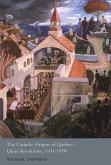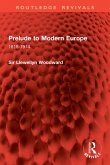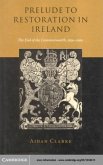In this study of the intellectual origins of Quebec's Quiet Revolution of the 1960s, Michael Behiels has provided the most comprehensive account to date of the two competing ideological movements which emerged after World War II to challenge the tenets of traditional French-Canadian nationalism. The neo-nationalists were a group of young intellectuals and journalists, centered upon Le Devoir and L'Action nationale in Montreal, who set out to reformulate Quebec nationalism in terms of a modern, secular, urban-industrial society which would be fully "e;master in its own house."e; An equally dedicated group of French Canadians of liberal or social democratic persuasion was based upon the periodical Cite libre -one of whose editors was Pierre Trudeau - and had links with organized labour. Citelibristes sought to remove what they considered to be the major obstacles to the creation of a modern francophone society: the all-pervasive influence of clericalism inherent in the Catholic church's control of education and the social services, and the persistence among Quebec's intelligentsia of an outmoded nationalism which advocated the preservation of a rural and elitist society and neglected the development of the individual and the pursuit of social equality. Behiels delineates the divergent "e;societal models"e; proposed by the two movements by focusing upon such themes as the critique of traditional nationalism; the roles of church, state, and labour; the response to the "e;new federalism"e;; the reform of education; and the search for a third party. He shows how the rivals combined to help bring down an anachronistic Union Nationale government in June 1960. In one form or another, he concludes, Cite libre liberalism and neo-nationalism have remained at the heart of the political and ideological debate that has continued in Quebec since the Duplessis era.
Dieser Download kann aus rechtlichen Gründen nur mit Rechnungsadresse in A, B, BG, CY, CZ, D, DK, EW, E, FIN, F, GR, HR, H, IRL, I, LT, L, LR, M, NL, PL, P, R, S, SLO, SK ausgeliefert werden.









